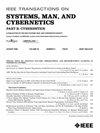Operations Research
IEEE Transactions on Systems Man and Cybernetics Part B-Cybernetics
Pub Date : 2016-09-16
DOI:10.1109/tsmc.1980.4308489
引用次数: 1
Abstract
OPRE 6250 Global Supply Chain Management (2 semester hours) Executive Education Course. This course addresses the design and management of global supply chain including international sourcing, integration of suppliers and distribution channels. Prerequisite: OPRE 62 01 or OPRE 6302 or consent of instructor. (2-0) Y OPRE 6271 Project Overview, Strategic and Process Management (2 semester hours) Introduces the project lifecycle, typical project management processes, leadership and teaming in project management, the relevance of business process analysis, strategic alignment of projects, and financial considerations in project selection. (2-0) R OPRE 6301 (SYSM 6303) Quantitative Introduction to Risk and Uncertainty in Business (3 semester hours) Introduction to statistical and probabilistic methods and theory applicable to situations faced by managers. Topics include: data presentation and summarization, regression analysis, fundamental probability theory and random variables, introductory decision analysis, estimation, confidence intervals, hypothesis testing, and One Way ANOVA (Some sections of this class may require a laptop computer). (3-0) S OPRE 6302 Operations Management (3 semester hours) Operations Management integrates all of the activities and processes that are necessary to provide products and services. This course overviews methods and models that help managers make better operating decisions over time. How these methods will allow firms to operate both manufacturing and service facilities in order to compete in a global environment will also be discussed. Prerequisite: OPRE 6301 (3-0) S OPRE 6303 Quantitative Foundations of Business (3 semester hours) This course discusses the applications of some basic mathematical concepts necessary for the business environment. Students are introduced to selected topics, including those in college algebra, matrix algebra, calculus, and optimization, and their usage in the context of managerial decision-making. MS Excel is used to illustrate and understand the core concepts. (3-0) S OPRE 6311 Game Theory (3 semester hours) Two person zero-sum and nonzero-sum games; Nash equilibrium; use of LP and Complementarity, N-person games; core, nucleolus, stable sets, etc. Applications to market equilibrium problems. (3-0) R OPRE 6325 (HMGT 6325) Healthcare Operations Management (3 semester hours) Explores how effectively managing and continuously improving the end-to-end heal care supply chain provides a competitive advantage. Topics include supply chain fundamentals, key players in the health care supply chain and their challenges, how the health care supply chain works, impact of technology on supply chain performance, and lean six sigma methodology. Simulations and case studies will reinforce the learning. (3-0) T OPRE 6332 Spreadsheet Modeling and Analytics (3 semester hours) This course explains the concepts of effective spreadsheet design and model building utilizing the electronic spreadsheet as the principal device. The course helps students to take an analytic view and acquire knowledge about specific decision making techniques for business, such as optimization and simulation, building spreadsheet models to identify choices, formalize tradeoffs, specify constraints, perform sensitivity analyses, and analyze the impact of uncertainty. The course also examines the applications in finance, economics, marketing, and operations. (3-0) S OPRE 6335 (SYSM 6304) Risk and Decision Analysis (3 semester hours) This course provides an overview of the main concepts and methods of risk assessment, risk management, and decision analysis. The methods used in industry, such as probabilistic risk assessment, six运筹学
OPRE 6250全球供应链管理(2学时)高管教育课程。本课程介绍全球供应链的设计和管理,包括国际采购、供应商整合和分销渠道。前提条件:OPRE 62 01或OPRE 6302或教师同意。(2-0) Y OPRE 6271项目概述,战略和流程管理(2个学时)介绍项目生命周期,典型的项目管理流程,项目管理中的领导和团队,业务流程分析的相关性,项目的战略一致性,以及项目选择中的财务考虑。(2-0) R OPRE 6301 (SYSM 6303)商业风险和不确定性定量介绍(3个学时)介绍统计和概率方法和理论,适用于管理人员面临的情况。主题包括:数据展示和总结、回归分析、基本概率论和随机变量、入门决策分析、估计、置信区间、假设检验和单向方差分析(本课程的某些部分可能需要笔记本电脑)。(3-0) S OPRE 6302运营管理(3个学时)运营管理整合了提供产品和服务所需的所有活动和过程。本课程概述了帮助管理者做出更好的经营决策的方法和模型。这些方法将如何允许企业经营制造和服务设施,以便在全球环境中竞争也将进行讨论。先决条件:OPRE 6301 (3-0) S OPRE 6303商业定量基础(3个学时)本课程讨论了商业环境中必要的一些基本数学概念的应用。本课程将向学生介绍一些选定的主题,包括大学代数、矩阵代数、微积分和优化,以及它们在管理决策中的应用。使用MS Excel来说明和理解核心概念。(3-0) S OPRE 6311博弈论(3学时)两人零和和非零和博弈;纳什均衡;利用LP和互补,n人博弈;核、核仁、稳定集等。应用于市场均衡问题。(3-0) R OPRE 6325 (HMGT 6325)医疗保健运营管理(3个学时)探讨如何有效管理和持续改进端到端医疗保健供应链,以提供竞争优势。主题包括供应链基础、医疗保健供应链中的关键参与者及其挑战、医疗保健供应链如何运作、技术对供应链绩效的影响以及精益六西格玛方法。模拟和案例研究将加强学习。(3-0) T OPRE 6332电子表格建模和分析(3个学期)本课程解释了利用电子表格作为主要设备的有效电子表格设计和模型构建的概念。本课程帮助学生从分析的角度出发,掌握具体的商业决策技术,如优化和模拟,建立电子表格模型来识别选择,形式化权衡,指定约束,进行敏感性分析,并分析不确定性的影响。本课程还考察了在金融、经济、市场营销和运营方面的应用。(3-0) S OPRE 6335 (SYSM 6304)风险与决策分析(3个学时)本课程概述了风险评估、风险管理和决策分析的主要概念和方法。工业上使用的方法,如概率风险评估,六
本文章由计算机程序翻译,如有差异,请以英文原文为准。
求助全文
约1分钟内获得全文
求助全文
来源期刊
自引率
0.00%
发文量
0
审稿时长
6.0 months

 求助内容:
求助内容: 应助结果提醒方式:
应助结果提醒方式:


